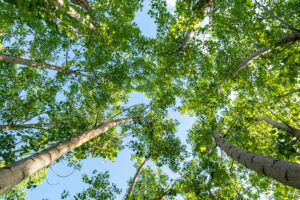Without question, the practices of reclamation and remediation are one of the most important aspects of environmental work in the 21st century. As we strive to rectify and rejuvenate damaged sites from human activities, the practices of reclamation and remediation can easily translate into our interpersonal and professional relationships with Indigenous communities across Canada.
Gary Pritchard is an established Environmental Project Manager at Curve Lake First Nation and provides his expertise in working with Indigenous communities. He is also a valued member of the Anishinaabe Nation. On November 28, 2017, Gary delivered an insightful webinar, Working with Indigenous People, and provides useful tips on how to establish a working relationship with Indigenous People that is respectful and allows them to reclaim their voice within today’s environmental issues.
Whether you are curious about Indigenous cultural practices or it is essential for you to engage with the Indigenous communities in your working life, here are some key take-away points that will assist you with your interactions.
1. When in doubt, ask.
- Gary suggests that when you are interacting with an Elder, Band member, Council, or Indigenous consultant, ask them how they would like to be referred. If we are serious in re-mediating the effects of our history with Indigenous People, we must provide the platform for them to reclaim their name, especially on how it is perceived, translated, and used among non-Indigenous persons.
- Show respect and demonstrate your understanding that each Indigenous community is different.
- If you are having difficulties with pronunciations, be professional and do not be afraid to ask the correct pronunciation of their name. It is good practice to write out the phonetic spelling of an Indigenous Person’s name or their Nation’s name.
- Come prepared when providing a presentation or meeting with a consultant or council member.
2. Inclusion and Involvement.
- Incorporate co-management and profit-sharing in all business proposals and interactions when establishing rapport and relationships between the business/consultant and an Indigenous community. This is a great way to honour their exchange of resources, expertise, and time to encourage employment opportunities and financial growth within their community. In the vein of reclamation and remediation, it is a step in the right direction to empower and build trust for current and future business relations.
- If you are invited to attend a ceremony or fishing trip, for instance, Gary advises you to actively participate in their community. Show your interest and support for any invited events or upcoming cultural activities.
- Do your homework and research before you interact with a consultant or their community. Decide what is the appropriate cultural protocol while engaging in serious or important cultural events. For some significant ceremonies, offering a gift or traditionally-prepared tobacco to Elders is standard practice. In other circumstances, it is unnecessary for you to offer tobacco to an elder in Inuit communities, according to the Centre for Indigenous Initiatives.
3. How aware are you?
Before, during, and after each interaction with an Indigenous person or community, Gary asks us to evaluate ourselves and observe any concepts of Indigenous persons that may limit our working relationship. Here are a couple of questions that he posed in the webinar: Are you comfortable working with Indigenous people?
- Do you have an understanding or willingness to understand Indigenous issues?
- Are you aware of their history?
- Do you understand the timing of your Nation, Band, or Council’s operations? Gary provides an excellent example: a Council may close their operations to honour death in the community.
- Who makes the decision in the community?
- What is your organization’s mandate for working with Indigenous People? Do these mandates need to change?
4. Less is More. While Gary makes many valuable points throughout his webinar, one of his most memorable and lasting messages is to reduce all formalities of regular business practices.
Western business practice celebrates precision, timeliness, preparedness, and trails of paper copies and proposals. This is not the case for Indigenous business practices. This is not to say that there is no professionalism within Indigenous dealings, but their approach of conducting meetings and making deals is different from Western business.
- Do not rush them in setting a time and location to meet.
- Allow them to set the pace, in case they need to consult with council or other parties before meeting with you.
- If you have not heard from your party within a necessary window of time, follow up with a call.
- Do not address Indigenous People as a Stakeholder. It is off-putting, and Gary advises that your Indigenous partners perceive Stakeholders in a negative historical context.
- Be professional, but do not arrive in business attire. This sounds contrary – but if you arrive with business attire, it acts as a repellent. Dress simply and provide an opportunity for them to get to know you. In their eyes, trust and first-impressions are more important than business presentation.
- Do not arrive with a finished draft plan before your meeting or consultation with the Indigenous community. This appears as though your business’ needs are more important than to develop a rapport and to consult on issues that may impact their community.
- Do not use acronyms and technical language. Keep your conversation simple and clear.
As Canada celebrated National Aboriginal Day on Thursday, June 21, 2018, we can clearly connect Gary’s suggestions for engaging with Indigenous People in a respectful and honourable manner. Applying the same concepts of remediation and reclamation used in environmental work, these terms are important concepts to use for empowering and including Indigenous communities in environmental decision-making and future partnerships.
Watch the full working with Indigenous peoples webinar on-demand.
Written by Veronica Nhukwete




